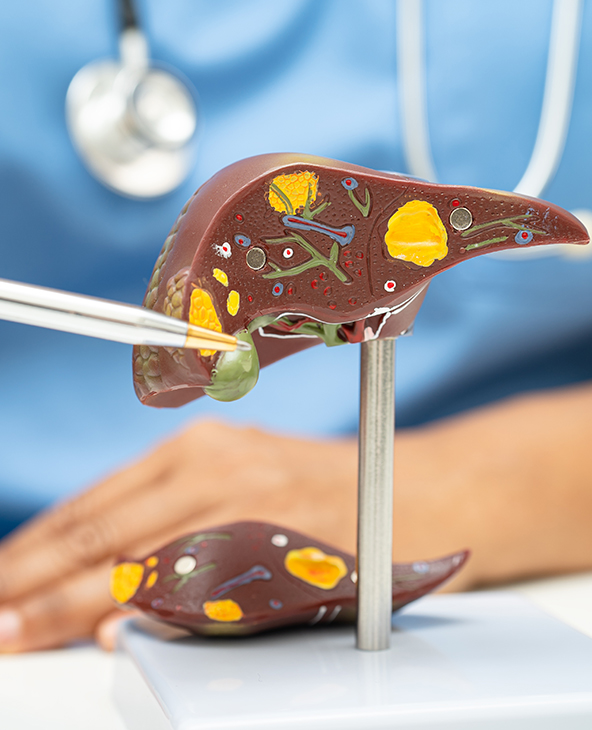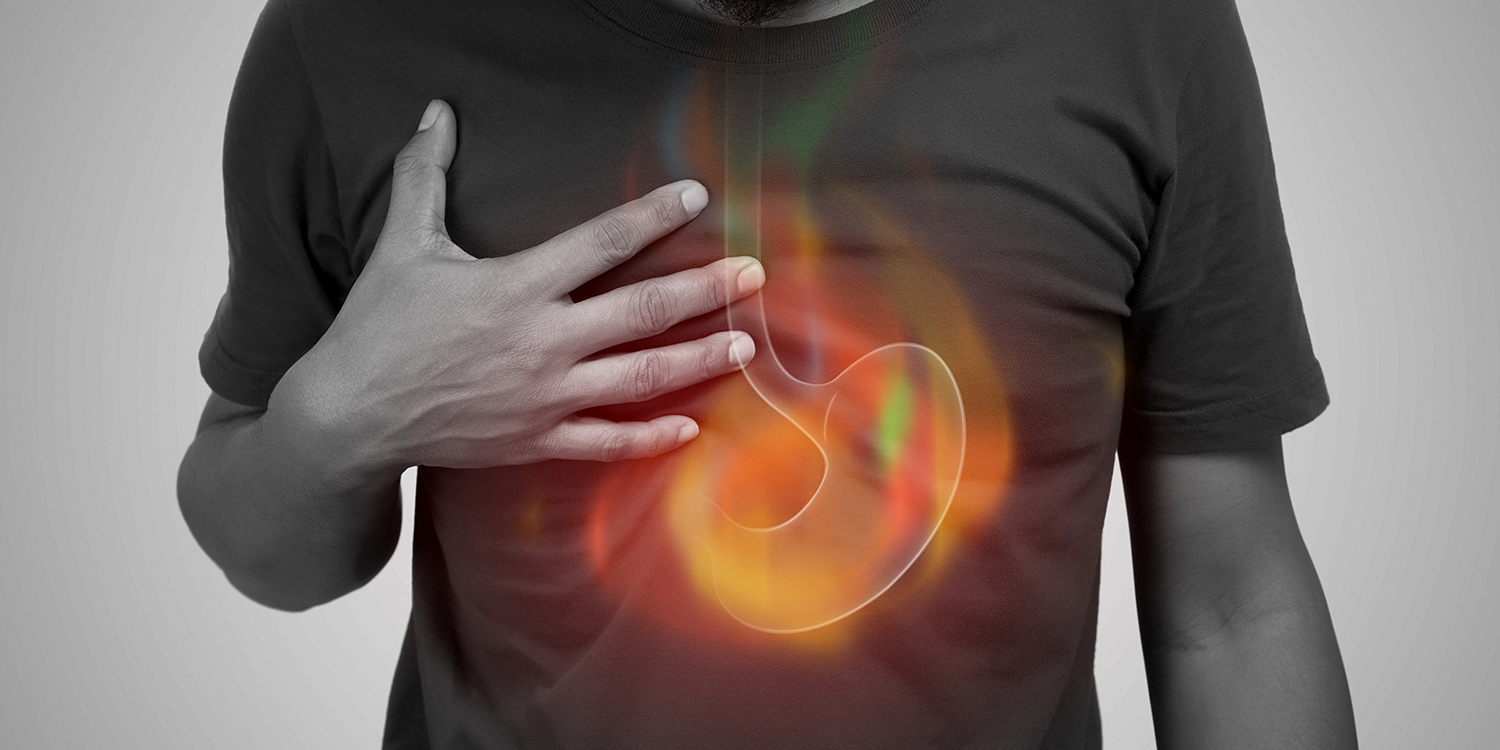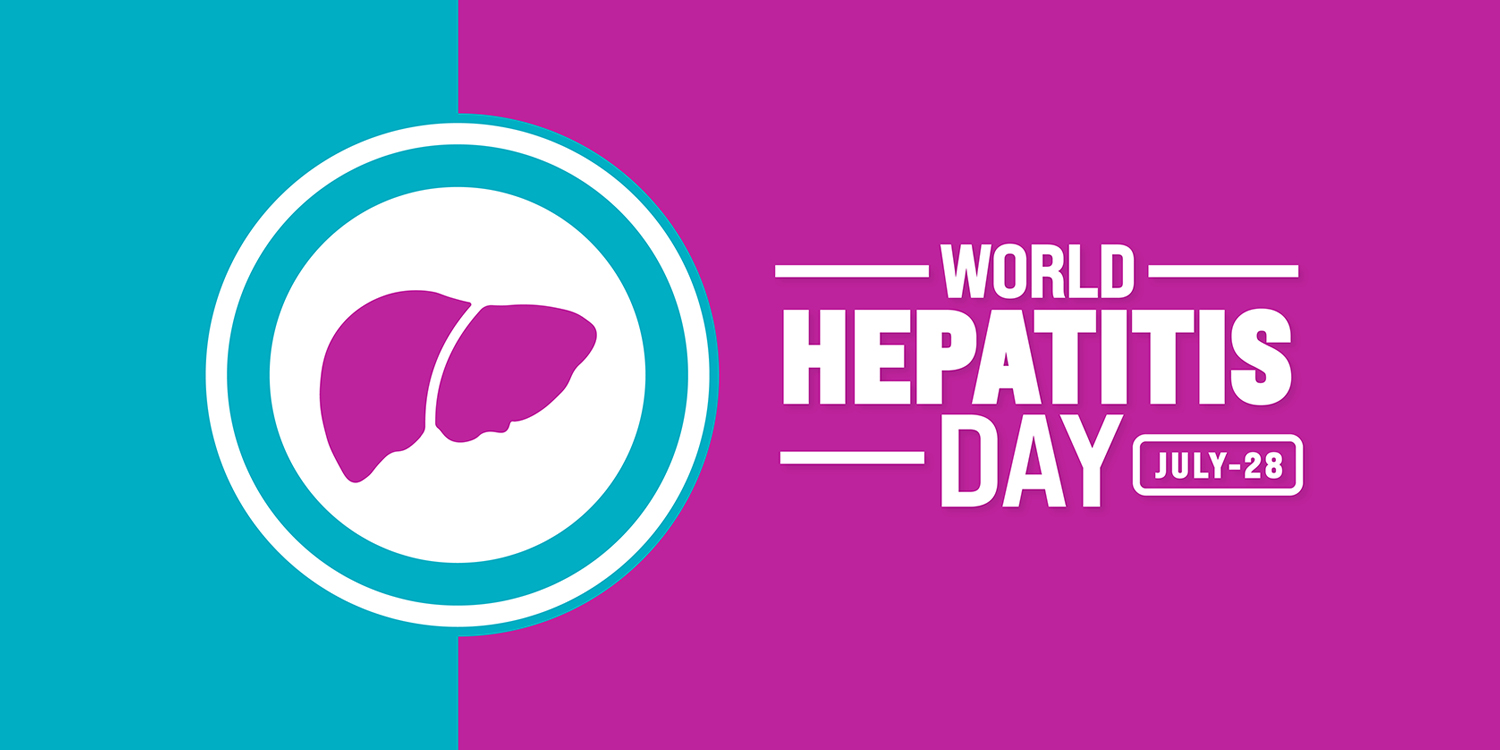Peptic ulcers are open sores that develop on the inner lining of the stomach, upper small intestine, or oesophagus. At Graphic Era Hospital, we provide specialised peptic ulcer treatment focused on accurate diagnosis, prompt symptom relief, and long-term healing. Our experienced gastroenterologists use advanced diagnostic tools and evidence-based therapies to manage all forms of peptic disease, including gastric, duodenal, and oesophageal ulcers. With personalised care plans, dietary guidance, and expert monitoring, we ensure comprehensive treatment for effective and lasting recovery.
When to Seek Peptic Ulcer Screening and Consultation
Peptic ulcers often develop silently, but certain symptoms should not be ignored. Early consultation can help prevent complications such as bleeding or perforation. Seek medical advice if you experience:

- Burning pain or discomfort in the upper abdomen
- Pain that worsens on an empty stomach or at night
- Bloating, belching, or feeling full quickly
- Nausea or occasional vomiting
- Unexplained weight loss
- Blood in vomit (which may appear dark or coffee-coloured)
- Dark or tarry stools indicating gastrointestinal bleeding
- Anaemia or persistent fatigue
- Loss of appetite
- A history of frequent use of NSAIDs or steroids
Things to Know Before Starting Peptic Ulcer Treatment
Before beginning treatment, it's important to understand the underlying causes and factors that may affect recovery. Key considerations include:
- Identifying whether the ulcer is gastric, duodenal, or oesophageal
- Determining the presence of Helicobacter pylori infection
- Reviewing long-term use of NSAIDs, steroids, or anticoagulants
- Assessing stress-related or lifestyle triggers
- Evaluating history of alcohol use or smoking
- Understanding dietary habits and irritants (e.g., spicy or acidic foods)
- Managing co-existing gastrointestinal conditions, if any
- Monitoring for complications such as perforation or bleeding
- Discussing the risk of ulcer recurrence
- Being aware of treatment adherence and follow-up requirements
Peptic Ulcer Treatments Available at Graphic Era Hospital
Treatment for peptic ulcers depends on the type, cause, and severity of the ulcer. At Graphic Era Hospital, we offer:
- H. pylori Eradication Therapy: A combination of antibiotics and acid suppressants to eliminate Helicobacter pylori infection.
- Proton Pump Inhibitor (PPI) Therapy: Medications that reduce stomach acid and promote healing of the ulcerated lining.
- Antacid and Mucosal Protective Agents: Supportive medications to neutralise acid and protect the stomach lining.
- Endoscopic Management: Diagnostic and therapeutic endoscopy to assess ulcer severity, control bleeding, or biopsy suspicious areas.
- Lifestyle and Dietary Counselling: Customised advice to reduce recurrence, manage triggers, and promote digestive health.
- Laparoscopic Ulcer Repair:Minimally invasive surgery in cases of perforated or non-healing ulcers.
- Management of NSAID-Induced Ulcers: Modifying medications and adding protective agents to prevent further damage.
- Follow-Up and Recurrence Prevention: Regular monitoring and medication review to prevent relapse or complications.
Why Choose Graphic Era Hospital for Peptic Ulcer?

Peptic Ulcer Services Available at Graphic Era Hospital
We offer a full range of services to ensure accurate diagnosis, effective treatment, and long-term management of peptic ulcers.
Diagnostics and Evaluation
- High-definition upper GI endoscopy for identifying ulcers, bleeding sites, or suspicious lesions
- Rapid testing for Helicobacter pylori infection
- Biopsy during endoscopy for confirmation and ruling out malignancy
- Blood tests to evaluate anaemia and inflammatory markers
Medical and Surgical Management
- Medication-based therapy using proton pump inhibitors, antibiotics, and mucosal protectants
- Endoscopic treatment of bleeding ulcers through techniques like cauterisation and injection
- Argon Plasma Coagulation (APC) for controlling bleeding from ulcers and ablation of persistent lesions
- Sclerotherapy for bleeding control in gastric or oesophageal varices when ulcers coexist
- Minimally invasive surgical repair in cases of perforated or non-healing ulcers
Dietary and Lifestyle Support
- Personalised dietary counselling to avoid irritants and aid mucosal healing
- Guidance on stress management and medication review to reduce recurrence risk
- Monitoring of NSAID use and alcohol intake
- Patient education for long-term gastrointestinal wellness
Top Peptic Ulcer Treatments Available at Graphic Era Hospital
- Upper GI Endoscopy
- Helicobacter pylori Eradication Therapy
- Proton Pump Inhibitor (PPI) Therapy
- Argon Plasma Coagulation (APC)
- Endoscopic Sclerotherapy
- Laparoscopic Ulcer Repair
- Dietary and Lifestyle Management
- Medication Adjustment for NSAID-Induced Ulcers
Top Procedures
- Peroral endoscopic myotomy (POEM)
- EUS-guided Hepaticogastrostomy (EUS-HGS)
- Endoscopic Mucosal Resection (EMR)
- EUS-Guided Gastrojejunostomy
- Endoscopic Submucosal Dissection (ESD)
- Lumen-Apposing Metal Stent (LAMS)
- Full-Thickness Resection Device (FTRD) Procedures
- EUS-Guided Gastric Coil Embolization
- EUS-Guided Antegrade Stenting (EUS-AGS)
- EUS-guided Choledochoduodenostomy (EUS-CDS)
- Metal Stent Placement
- Laparoscopic Cholecystectomy
- Z-POEM (Peroral Endoscopic Myotomy)
- Gallbladder Cancer Surgery (Laparoscopic & Open)
- Gastric Cancer Surgery (Gastrectomy)
- Laparoscopic Sleeve Gastrectomy
- Gastric Bypass Surgery
- Laparoscopic Appendectomy
- Laparoscopic Splenectomy
- Splenorenal Shunt Surgery
Blog
Frequently Asked Questions
What are the early signs of a peptic ulcer?
Early symptoms often include a burning pain in the upper abdomen, bloating, nausea, or feeling full quickly after eating. Some people may also experience heartburn or mild discomfort that comes and goes.
Is peptic ulcer a serious condition?
While treatable, peptic ulcers can become serious if left unmanaged. Complications such as bleeding, perforation, or obstruction may require emergency care or surgical intervention.
Can stress cause peptic ulcers?
Stress alone does not typically cause ulcers, but it can worsen symptoms or delay healing. Most ulcers are linked to H. pylori infection or long-term use of NSAIDs.
How is Helicobacter pylori infection diagnosed?
Diagnosis is usually done through rapid tests during endoscopy, stool antigen tests, or urea breath tests. Biopsies may also be taken during endoscopy for confirmation.
How long does it take to heal a peptic ulcer?
With appropriate treatment, most ulcers heal within 4 to 8 weeks. The healing time may vary based on the cause, treatment adherence, and lifestyle factors.
Can I treat a peptic ulcer at home?
While symptoms can be managed with dietary changes and over-the-counter antacids, medical evaluation is essential. Prescription medications and follow-up are necessary for complete healing.
What foods should I avoid if I have a peptic ulcer?
It’s best to avoid spicy foods, caffeine, alcohol, acidic fruits, and fried items. A bland, balanced diet can help reduce irritation and support healing.
What are the complications if a peptic ulcer is left untreated?
Untreated ulcers can lead to serious complications, including internal bleeding, perforation, or gastric obstruction, all of which may require emergency care.
Can a peptic ulcer come back after treatment?
Yes, especially if H. pylori infection is not fully eradicated or if NSAID use continues. Regular follow-up and lifestyle changes can reduce the risk of recurrence.
When should I see a gastroenterologist for a peptic ulcer?
You should consult a specialist if symptoms persist, worsen, or if there are signs of bleeding such as black stools or vomiting blood.





